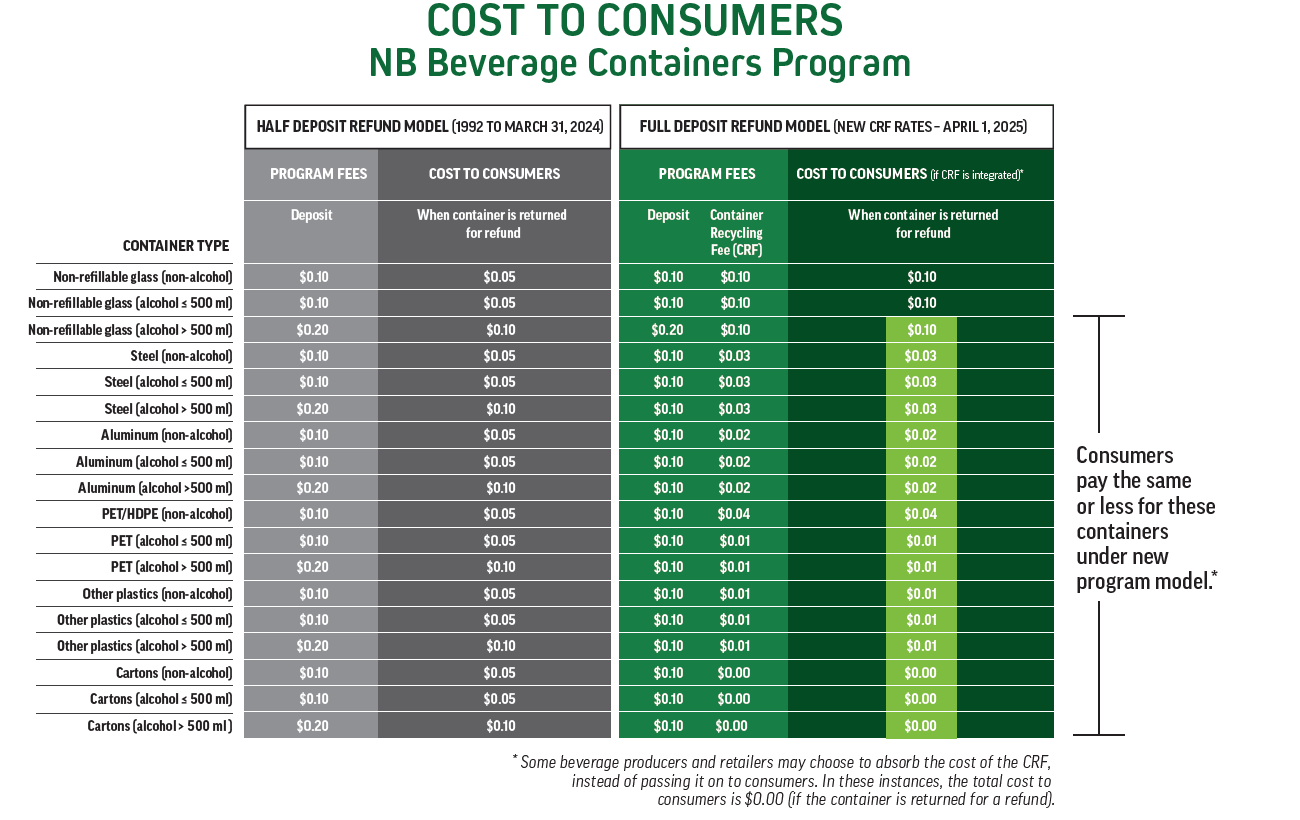Since April 1, 2024, as per the Designated Materials Regulation, the Beverage Containers Program in New Brunswick operates under a non-profit, producer-operated model. To assist in meeting environmental performance objectives, a container recycling fee (CRF) is imposed on beverage product producers, which helps recover the costs of collecting, processing, and sending deposit-bearing beverage containers to facilities for recycling. CRFs may or may not impact the retail price of certain beverage products.
CRFs are adjusted annually, with new rates typically taking effect on April 1 each year. Changes to CRFs are announced at least 90 days prior to their effective date.
April 1, 2025 to March 31, 2027
***As of October 28, 2025, Encorp has confirmed that the CRF rates in effect since April 1, 2025, will remain unchanged until March 31, 2027 — no decrease or increase in CRF rates is planned for 2026.***

Frequently Asked Questions
What is the difference between a CRF and a deposit?
A CRF (container recycling fee) is an environmental handling/management fee charged by Encorp Atlantic to beverage producers to cover the net costs of collecting, processing and sending their containers to facilities for recycling. These are generally a few cents per container, and the exact amount set for each container depends on a variety of factors, including how cost-effective a container’s material type is to recycle.
A deposit is a refundable 10-cent (or 20-cent) “fee” that you pay when you purchase a ready-to-drink beverage product in a sealed container on top of the price of the item – intended to entice you to return the empty beverage container to your local redemption centre so that it can be collected to be sent to a facility to be recycled or refilled – instead of ending up in a landfill or as litter. Before April 1, 2024, you would have paid a 10-cent deposit on certain beverage products and a 20-cent deposit on others – and been refunded half these deposits when returning the empty containers for recycling. Now, you are fully reimbursed for these deposits when you return empty beverage containers to your local redemption centre.
How are CRFs set?
CRFs are set for each container type according to an annual calculation of the estimated net recycling costs. For example, it costs less to collect, handle, transport, and process plastic PET bottles than glass bottles. Based on pricing set in the marketplace, Encorp Atlantic may generate more revenue from the sale of PET compared to glass. Therefore, the net cost of recycling a glass bottle may be be higher, so the CRF for that container may be higher compared to a PET bottle.
These calculations may change yearly, depending on volumes, costs and revenues associated with different container types. That is why CRFs set by Encorp may fluctuate depending on the net cost calculated each year.
Aren’t the CRFs just another form of taxation?
No, Encorp Atlantic is a non-profit producer responsibility organization. None of the CRFs or the deposits go to any level of Government. The CRFs are charged by Encorp directly to beverage producers.
CRFs are common in many other provinces and reflect the growing movement towards eco-packaging and producers taking responsibility for the lifecycle of their products. There are costs involved in recycling beverage containers, and charging CRFs to beverage producers is necessary to keep New Brunswick’s beverage container deposit/refund recycling system financially sustainable.
How are CRFs used? Where does the money go?
The money collected from CRFs, plus the money from the sale of commodities and any money left over from unclaimed (unredeemed) deposits, are used to pay for the collection, handling, transportation, and processing of beverage containers, as well as Program administration (including recycling promotion and education).
Are CRFs advertised in stores? Do they show on my receipt?
The only additional “fee” you pay, in addition to the price of a beverage product (which may or may not already have a CRF calculated and integrated as part of the item’s sales price), is the fully refundable deposit. The deposit should be clearly listed on your receipt. You can feel good about purchasing deposit-bearing beverage products, especially if you ensure their empty containers are returned at your local redemption centre to be recycled. You will get your full deposit back as a refund when you do so!
CRFs are internal environmental fees charged by Encorp Atlantic to beverage producers to cover the estimated net costs of collecting, processing and sending their containers to processing facilities for recycling. Some may choose to absorb these costs, while others may choose to pass them on to retailers, who, in turn, may absorb them or pass them on to consumers, the same as they do for many factors contributing to price fluctuations for grocery items and goods. As per the current Regulation in New Brunswick, when passed on to consumers, CRFs must be integrated into the total price of the beverage product.
